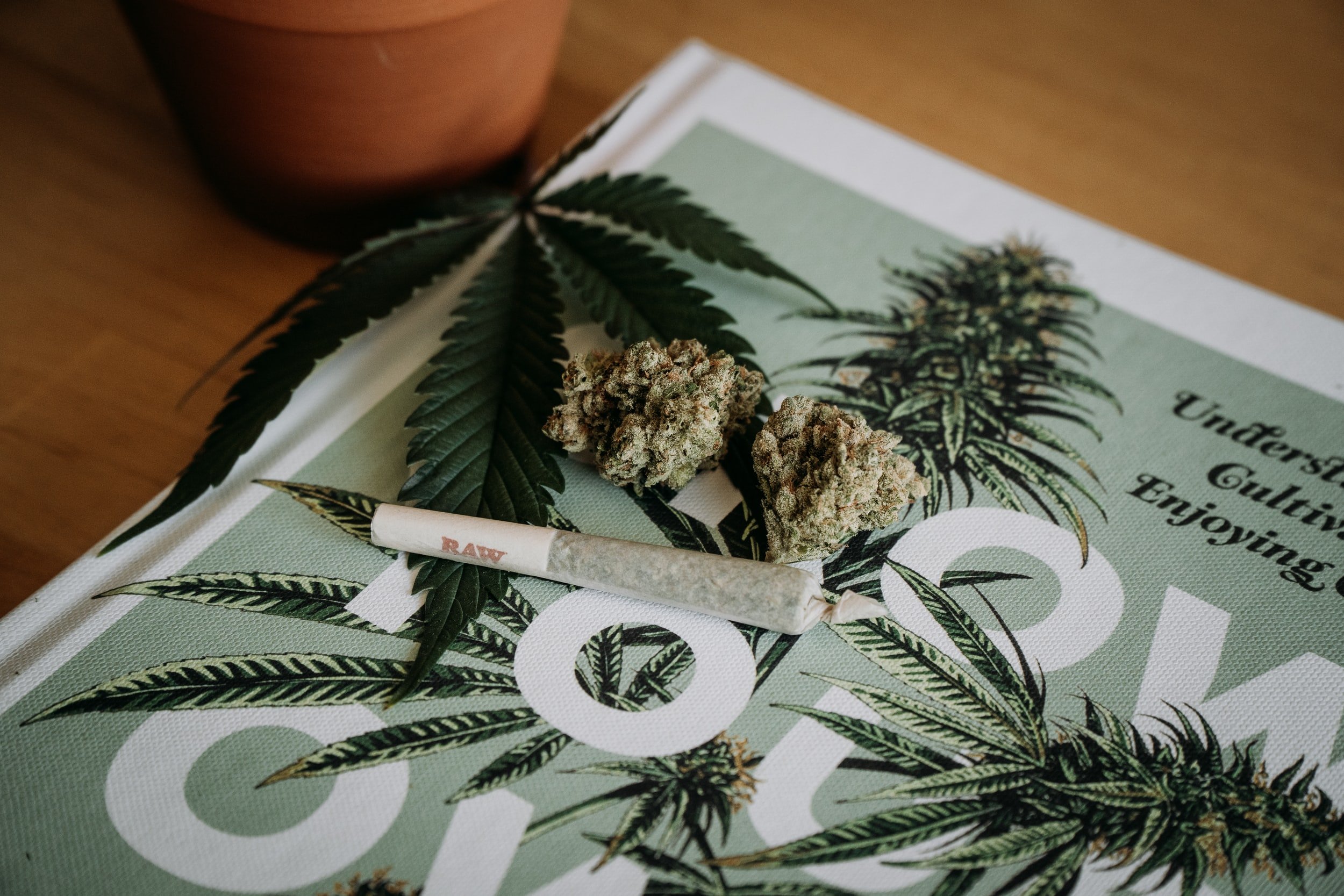Why THC is More Medicinal Than CBD
CBD is not as medically useful as THC according to all of the data comparing these cannabinoids —but cannabis culture might say otherwise.
Link to the Original Article
Ten years ago, seldom was it the case that you saw any cannabis-related product in ordinary stores. Today, the shelves are stocked with CBD. Cannabis writers now cannot stop writing about CBD, and celebrities cannot stop pushing their own CBD companies. CBD content is all over the internet and world, and its primary target audience are readers interest in health and wellness.
The story that CBD enthusiasts tell is quite compelling. CBD (Cannabidiol) is touted to be the “medicinal” chemical produced by cannabis. The hype behind it is essentially that CBD can treat a myriad of conditions without the psychoactive effects of THC (Tetrahydrocannabinol). Many patients who are seeking medical cannabis find these claims compelling, as getting high simply is not for everyone.
The question remains: can CBD really help with things like anxiety, pain, depression, seizures, and cancer? The way CBD is advertised and spoken about makes it sound like a miracle cure-all.
Yet, the short answer is mostly not.
At the moment, the existing research on CBD shows that it is quite effective for treating seizures. This is great, as — unlike many standard seizure medications — CBD has little to no negative side-effects for most people. For all of the other prepared benefits of CBD, however (including pain, anxiety, cancer, and drug addiction) the data does not show that CBD is effective. Any data that does show its efficacy is animal research that utilizes dosages that most people simply cannot afford (for example, 800mg per day of CBD might help with anxiety — for context, a bottle of CBD oil that contains a total of 600mg costs about $100 at most legal dispensaries).
Until there is more research showing that the common measly dosages of common CBD products can do anything, it is really best not to waste your money on such products. For natural remedies to things like anxiety, you are better off going with supplements that actually work, like lavender extract — lavender extract (specifically, Silexen, taken orally) has in some studies, proven more effective than benzodiazepines, but without the risk of dependence and side-effects.
What about THC? It is quite often assumed that THC is merely “what gets you high” and that’s all it is. Hence, stigma has been attached to THC — as, for whatever reason, there is often a strange moral opprobrium accompanied implicitly in comments like, “isn’t that what gets you high?” Well, THC is what gets you high, but THC also has lots of good research showing a myriad of important medical usages — unlike CBD, which can only truly be said to have utility for one and only one medical condition.
THC and Pain
I have always truly hated using NSAIDs for pain. I, like many, deal with two uncomfortable side-effects from NSAIDs: stomach pain and appetite suppression. These side-effects can be bad enough to cause ulcers. Aside from this, NSAIDs seldom work for me. This is, of course, anecdotal and the data shows that NSAIDs are moderately effective as opposed to a placebo.
The data regarding THC that is emerging is showing that it is a potent anti-inflammatory and pain-reducing compound that eliminates worries regarding gastrointestinal ulceration and bleeding. When studied alongside CBD and NSAIDs, THC has repeatedly outperformed the former two on markers of pain reduction. Likewise, THC also outperforms CBD and NSAIDs in its anti-inflammatory abilities.
THC and Cancer
It is widely believed that CBD can help cancer patients with their treatment. However, this claim is largely, if not entirely, misrepresenting the research. Indeed, there is a reason why the FDA warned CBD oil companies to stop spreading the lie that CBD helps fight cancer: it is because CBD oil for cancer is essentially snake oil — it doesn’t work.
What about THC for cancer? Well, unlike CBD, there is actually a great amount of research showing that THC is quite a beneficial compound for those struggling with cancer. The cannabinoid system in the body plays a crucial role in the development of cancer. Cannabinoids are capable of inducing cell death in cancer cells and they are able to reduce the blood supply of tumors. Cannabinoids even have the potential to slow down the spread of cancerous cells. All of these findings are a result of the utilization of THC in studies, not CBD.
This shouldn’t be taken as advice to go off your chemotherapy and to just start smoking weed. Rather, it is simply to illustrate that THC has the potential to become an integral part of cancer treatment in the future.
THC Can Help Treat A Lot of Conditions
THC is not the end all be all remedy for all things. Indeed, as opposed to common belief, it isn't quite recommendable to treat your anxiety and/or depression using cannabis. Much of the data we have on such treatment attempts have proven a positive correlation between cannabis usage and mental health issues — which is to say, if you have a proclivity towards anxiety or depression, cannabis has the potential to make it worse. So too with conditions like schizophrenia and psychosis: cannabis is not recommended in individuals who are [genetic] candidates for such conditions or who already have such conditions. Though, to caveat, it seems that this is quite a mixed bag. Some people can see improvements in their mental health symptoms using cannabis, others will see no effect, and others will have worsened mental health symptoms. Sounds no different from conventional psychiatry, which is also a mixed bag consisting of pure trial-and-error. Hence, it doesn’t seem like we should dispose of THC entirely when it comes to mental health treatment. Indeed, there is research emerging now that heavily suggests that the usage of THC can help in the treatment of post-traumatic stress disorder (PTSD) — which is amazing, considering that general medicine has yet to make a drug that is specifically designed to help with PTSD and the drugs used, like SSRIs, aren’t very effective in treating PTSD.
All of that aside, there is a lot of research showing that THC can help with the treatment of many conditions, some of which being quite serious conditions. For instance, research has consistently found that cannabis use can significantly reduce the negative physical effects of multiple sclerosis, such as fatigue, pain, and insomnia — along with most other conditions that accompany these horrible symptoms, like cancer and neuropathic disorders.
The short and sweet of it is this: if you are looking for medicinal marijuana, your best bet is high-THC products. Until there is better research done on the effectiveness of CBD in the treatment of many conditions unless you have a disorder that causes seizures, CBD can safely be referred to as a waste of time and money — especially when it is sold in supermarkets and health food stores at measly dosages that wouldn’t even help an epileptic. Don’t be fooled by marketing gimmicks and by others who have been fooled by such gimmicks: stick with THC if you are looking for medicinal benefits associated with marijuana.
This article does not provide medical advice. The information, including but not limited to, text, graphics, images and other material contained in this article are for informational purposes only. No material on this article is intended to be a substitute for professional medical advice, diagnosis, or treatment. Always seek the advice of your physician or other qualified health care provider with any questions you may have regarding a medical condition or treatment and before undertaking a new health care regimen, and never disregard professional medical advice or delay in seeking it because of something you have read in this article.

